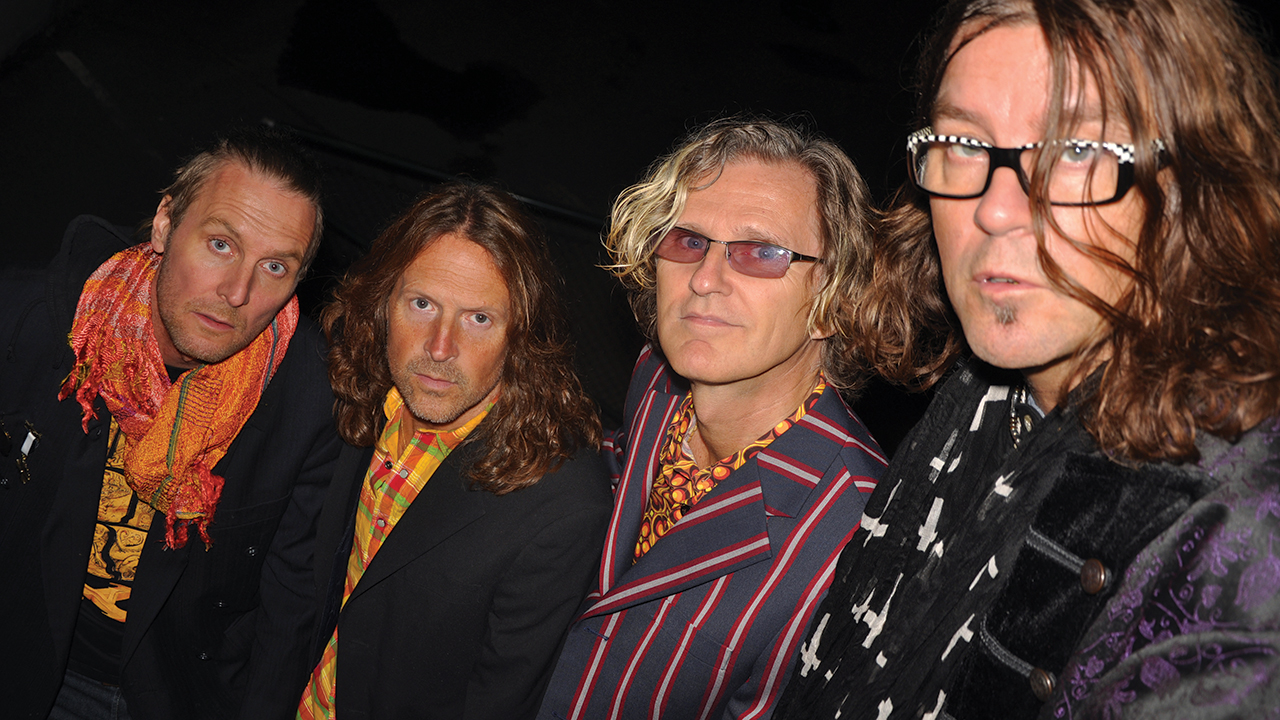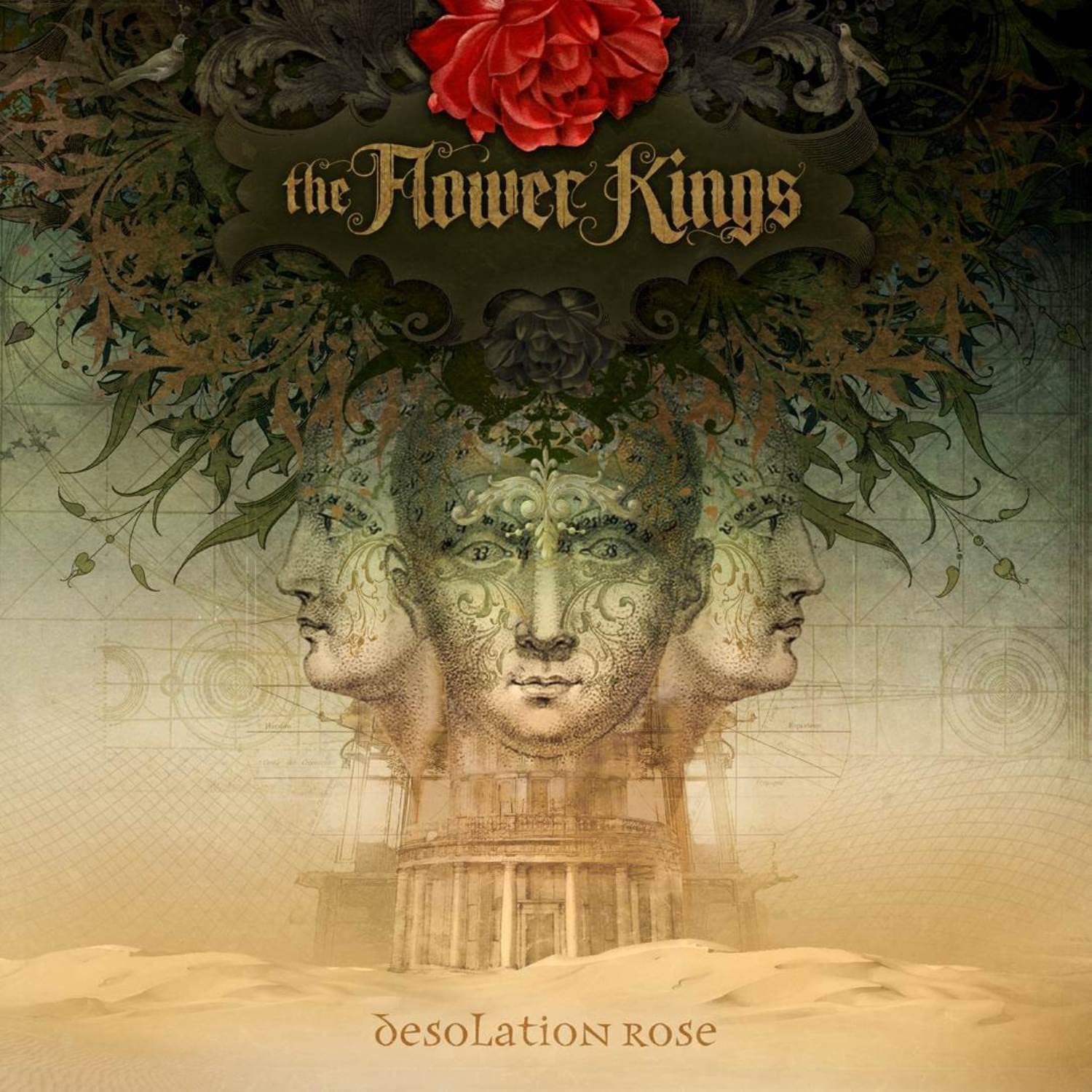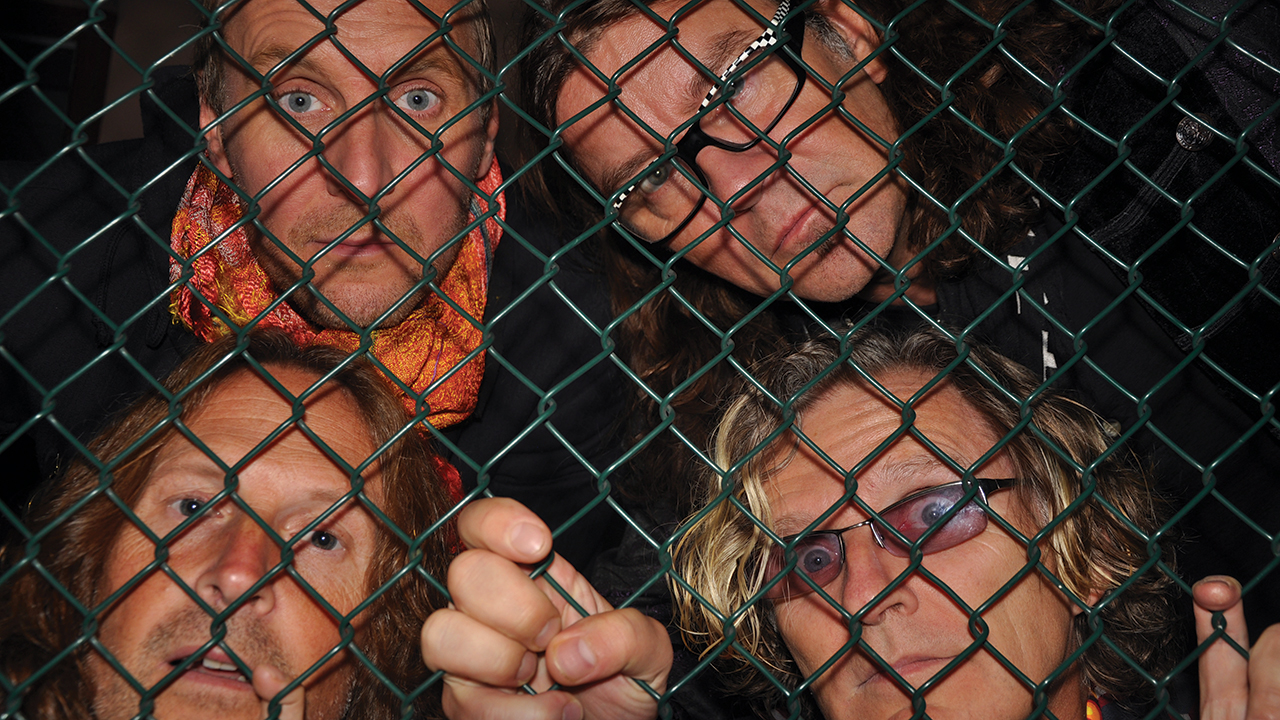The making of The Flower Kings Desolation Rose
The second album from the Swedish prog collective following a five year hiatus in the 00s found them in continuing to blossom

You can almost feel the industry over there in Sweden. The Flower Kings’ Roine Stolt has just returned home from a visit to the UK, where he attended the Prog Awards and recorded a music video with his side project, Transatlantic. Straight after getting off the phone with us, he’ll head off for a band meeting to discuss the tour to support the Kings’ twelfth studio album, Desolation Rose. With shows pencilled in for April 2014, Stolt will just have time to get off the Transatlantic tour bus, kiss his wife hello, pack another bag, kiss her goodbye and leave.
“These last two years have been extremely busy,” Stolt says, his voice pitched somewhere between sigh and laugh. “It looks like I’ve been working every single day. I was in Rome with my wife this summer and that was the first break I had in a long time.”
It’s to be expected when you’re in two prog bands, both making albums simultaneously. Not to mention taking The Flower Kings’ superb post-hiatus album Banks Of Eden across the globe, alongside co-headlining shows with Mike Portnoy and Neal Morse to celebrate the InsideOut label’s 20th anniversary.
The band’s much-publicised five-year hiatus is now clearly behind them, and they’re making up for lost time. “We’re still on good terms, and still friends,” says Stolt, “so the break obviously worked! In terms of how we sound, we’re tighter now. Felix [Lehrmann] has been our drummer for two years now, and he’s adapted to the sound of the band, which is a little bit heavier now.”
Stolt’s co-vocalist Hasse Fröberg is working on material for his upcoming Musical Companion album, and we catch up with bassist Jonas Reingold at keyboardist Tomas Bodin’s place, where they’re rehearsing with the trio they’ve formed with Lehrmann.

“The last tour was great fun,” says Reingold, who’s hearty, friendly and funny. “I think we sounded better than ever. The London gig was awesome. The cherry on the cake was Steve Hackett joining us for the encore – what a memory. There was a good spirit in the band on this tour – we had fun on and off stage. It’s like an old marriage – the relationship goes in waves. You have five years where things are good, then five where it’s like: ‘I hate how you hold your fork! I hate your laugh!’ The break was a good thing, and it showed in the music.”
Though much of the thrill of Banks Of Eden lay in the band’s resurgent sense of themselves as a symphonic rock powerhouse, the lyrics dealt with some weighty themes – tyranny, war, religion – and on the follow-up they’ve taken that up a notch.
Sign up below to get the latest from Prog, plus exclusive special offers, direct to your inbox!
Desolation Rose comes armed with titles such as Last Carnivore, Dark Fascist Skies and Silent Graveyards. Surely this is their darkest album? “As far as the lyrics go, you’re probably right,” says Stolt. “The times we’re living in now, you get bombarded by the news – all these disturbing things are happening in the world, not only wars but the environment too. As a band it would be boring to go over the same things – we can’t sing about The Flower King another time. We like to leave an impression, not just sing about dragons and hobbits. There has to be something different.”
Monolithic 13-minute opener Tower ONE sets the scene, as an angel figure watches helplessly as mankind lays waste to the planet. Musically, it’s typical Flower Kings – grandiose, impeccably played, dense and layered with catchy melodies, with nods to the vintage-era prog of Yes, Rush and Genesis. Yet it is very much their own creation.
“The album’s not sinister dark,” contends Reingold. “It’s just the older you get, the more you reflect on things. Life’s not always sunshine and lollipops. That awareness comes with age. The younger generation might think we’re boring, but it can be good to say something important.”
The bassist tabled the idea for perhaps the album’s most literal and powerful track. White Tuxedos is an unsettling anti-war tract that uses news footage and soundbites from a speech Richard Nixon made during the Vietnam War. It’s Paul Hardcastle’s 19 as re-imagined by Roger Waters. Reingold’s original idea was a raven’s-eye view of a war cemetery, the soldiers laid to rest beneath white crosses and stones. Stolt then gave it a sci-fi twist. “In Sweden we say when people die they get a white tuxedo,” he explains. “You’re basically put in a white coffin. Jonas brought the chords to the studio, we tracked it, and he had lyrics about the white crosses. The Nixon speech fitted so well. He’s sending out all these young men to die, saying: ‘I want peace as much as you.’ Really? Vietnam was big thing in Sweden. I was a boy, and it’s engraved on my memory. It could be from any time though. What a waste, what a lie, and for what? I hope more people start asking questions – why do I serve my country? What do I get when I get back?”
Despite its mighty chorus, The Resurrected Judas explores how some people will stop at nothing for money or power. Yet in with the brooding there are notes of hope. Blood Of Eden sets mankind in its cosmic perspective (‘We’re the third from the sun/We are green and we are growing’), complete with a fun lift of the timeless Close Encounters leitmotif. Even the album title was consciously lightened. “Everyone thought ‘Desolation Road’ was a great album title,” says Stolt, “but I thought it was too negative, and in the end we put in the ‘Rose’. The human race is the rose, in all this mess. We’re the hope, the colour, the beauty.”
While Desolation Rose taps into the general 21st-century malaise, there’s also a Swedish flavour to all this. The country’s renowned for its sense of social justice, so its artists must be acutely sensitive to its opposite. “The media in Sweden’s never 100 per cent fair or balanced,” says Stolt, “but we have a group of independent journalists here, and they’re very angry. If someone does something wrong, they’ll dig it out and expose it. There are really shady people here, and they cannot hide. They have to pay for it in the end. In Sweden you can’t get away with things. Well, they killed Olof Palme [the Swedish Prime Minister assassinated in 1986]. That was a long time ago, and we still don’t know what happened. But we’re not in a depression as a band. Rather the opposite – the band’s in a better mood than it has been for a long time.”

After all, The Flower Kings are, he contends, about entertainment and, fundamentally, the music. This in itself has evolved over their near-two decades together. “In the 2000s we did albums like Adam & Eve, Unfold The Future and Paradox Hotel, and we could sense after a while there was a certain degree of criticism coming in. You are who you are, and you write what you write, but fans and critics were expecting something new, and when we did that, strayed from the formula on some songs, those were singled out for criticism. They wanted us to have The Flower Kings sound but to be something new. That left us with a big question mark!”
What is new for Desolation Rose is the approach to recording. The whole band came into Fenix Studios with ideas and together they hammered these out into songs over 10 days. Stolt then wrote extra tracks that were recorded at a later session.
“We’d never written like that before,” says Reingold. “If you’re in that creative spirit you can accomplish more in two days than you would on your own in two months – you get feedback straight away, you can go into the control room and listen to your ideas directly, and you know how it sounds when the whole band’s playing it. It’s important to do something different.”
Both he and Stolt reckon Desolation Rose will take on a life of its own on the 2014 tour. Between now and then, there’s a Banks Of Eden live DVD to assemble, a Transatlantic album/tour, Reingold’s work with his two trios, and Karmakanic and Hasse Fröberg’s Musical Companion albums to write and record.
As for The Flower Kings’ future, Reingold is hopeful. “Roine’s 57 this year and I’m 45. Physically we’re all in good shape, so hopefully we can do this a couple more years. It’s the same for all bands who’ve been out there a while – trends come and go, but some bands stay. Hopefully we’ll be one of them.”
This article originally appeared in issue 40 of Prog Magazine.
A music journalist for over 20 years, Grant writes regularly for titles including Prog, Classic Rock and Total Guitar, and his CV also includes stints as a radio producer/presenter and podcast host. His first book, 'Big Big Train - Between The Lines', is out now through Kingmaker Publishing.

